Studio blog
Posted on Thu 25 May 2023
LIVE DRAWN STAGES
This blog reports on a recent R&D project completed by live illustrator & Pervasive Studio Resident Camille Aubry in collaboration with performer Tom Marshman and photographer Khali Ackford.
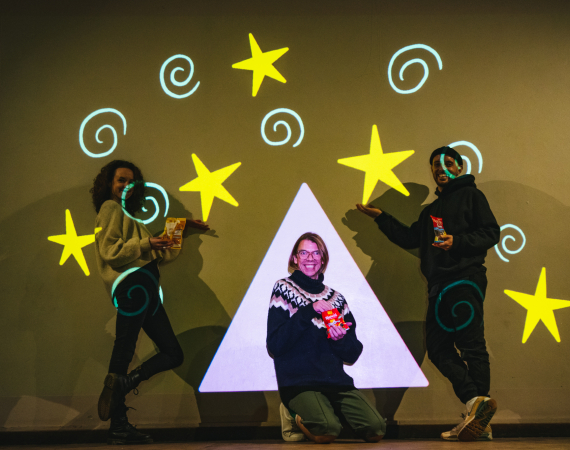
If you think back to your school days, there were always a couple of kids hiding in the corner of the classroom, so quiet that you wouldn’t necessarily know their names, let alone the sound of their voices. They weren’t necessarily bad students, in fact they sort of seemed to somehow absorb enough knowledge so that they could “pass” and escape mainstream education as quickly as possible, but the social experience of school was definitely not part of that process. The unfortunate situations that unexpectedly called them to the front of the class was visibly excruciating and they seemed to avoid these unwanted performances at any cost (these acts of avoidance could be extremely creative). You probably know where this is going already: I was that kid and in many aspects I still am. But I somehow managed to turn it into a job that I truly cherish. I get to hide in the corner of many rooms and absorb knowledge, and just like at school, I draw while I listen. But now, amazingly, I am not getting told off by a random teacher about my notebooks being covered with doodles, it is actually what is expected of me.
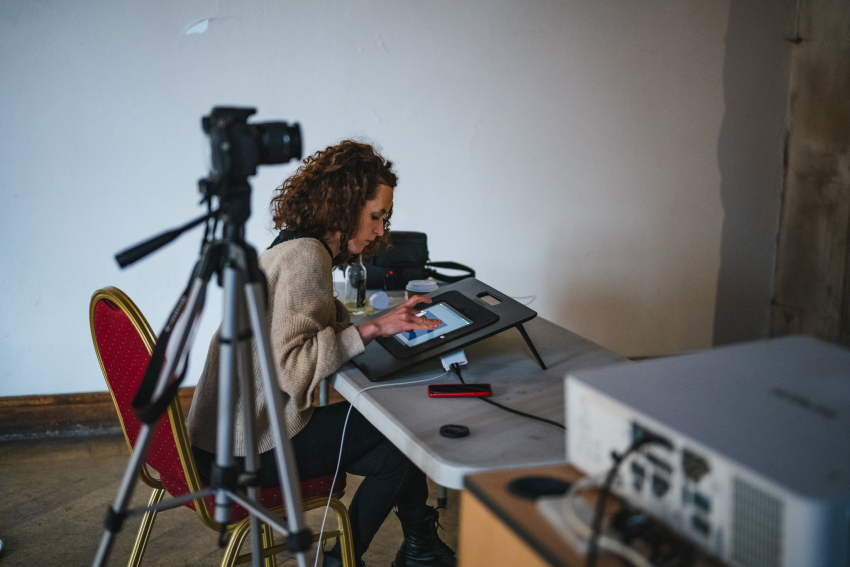
Live illustration, graphic recording, scribing, sketchnoting, visual note-taking… There are many ways to describe a discipline so young yet so instinctive. Our practice seeks to record what happens in real time with drawings, offering accessible visual summaries for dissemination post-event, with the aim to keep the momentum going. Appearing in the 70s, live illustration has drastically expanded over the past 15 years, and is yet still mainly pigeonholed as an add-on to corporate events. However I’ve always felt that there was an under-explored potential in what it could do and be, more specifically in the live art industry. This led me to work in 2021 on Live Illustration Expanded, a project funded by the Arts Council that explored how to support physical and virtual stage events with live drawn sets, using approaches such as projection mapping or live streaming. Testing these ideas in the studio, with wonderful collaborators and fellow residents such as Lawrence Hoo, Xavier Velastín and Limbic Cinema, was both exciting and enticing, and made me wonder how would this approach look on a real stage.
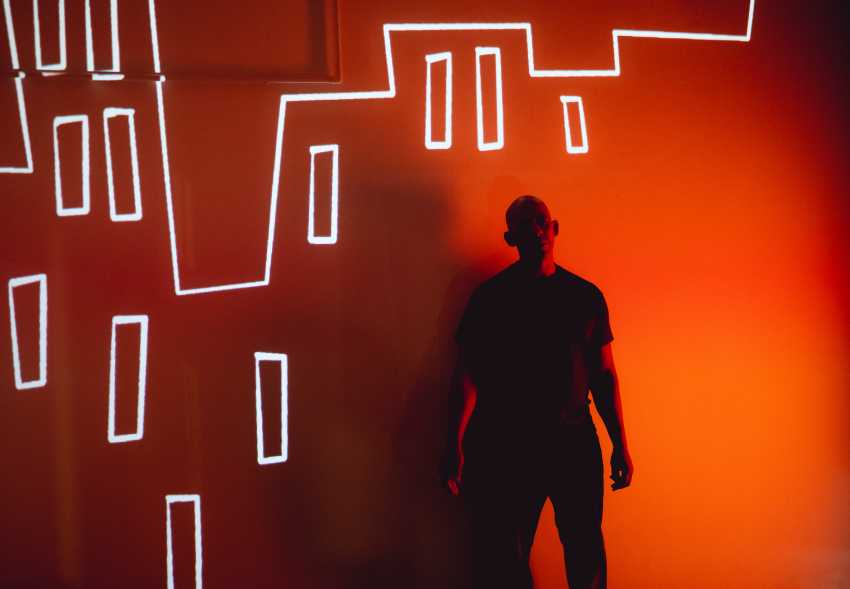
The opportunity to bring Live Illustration Expanded to the next stage, metaphorically and literally, arose in February, thanks to the support of the Studio Development Fund and WEEVA. Again surrounded by a brilliant team, with performer Tom Marshman and photographer Khali Ackford, I obtained protected time to test and record ideas initiated during my previous project. This time however, it took place in “real” scale-ready performance spaces, some of Bristol’s most iconic venues: St George’s and Ashton Court Mansion. It was very special to learn how my practice could fit and interact within those existing live venues’ creative ecosystem. This model, not rooted in classical theatre performance but taking inspiration from the traditional French “concerts dessinés” (drawn concerts), indeed has, I believe, a role to play on stage. And this time, against all expectations, I was happy to be brought to the front of the room as part of the performance.
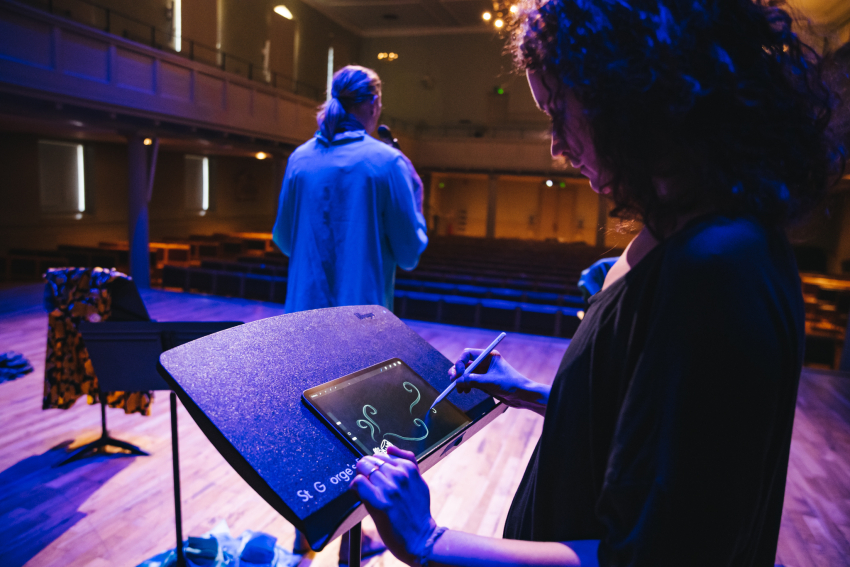
Live Drawn Stage explores two of Tom’s existing shows, Butterflies & Dinner Ladies and Section 28 and Me. The choice of shows was key not only because of the essential testimonial narrative they offer, but also because of their varied stages of development - the first one being completed and previously performed in various venues, and the second one being still a work in progress. Butterflies & Dinner Ladies helped us reveal how projected live illustrations can bring magic to the stage and expand the metaphor, whilst Section 28 and Me suggested how the same practice could potentially, like a scribed scenography, help theatre makers devise and rehearse when the physical set isn’t ready yet.
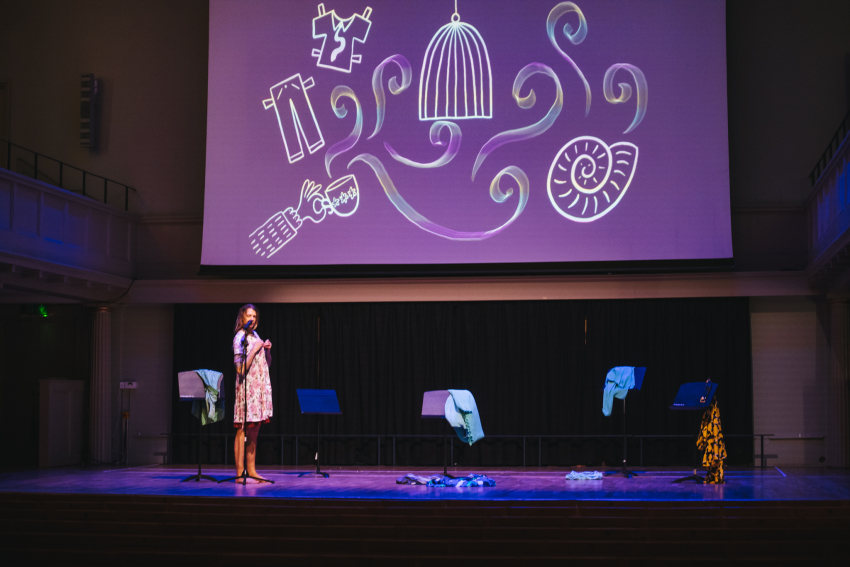
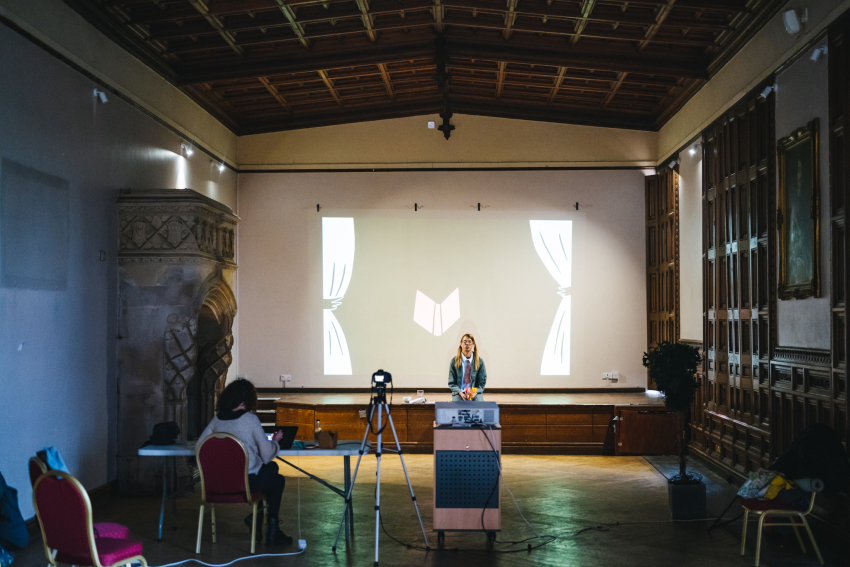
These experiences also demonstrated how live illustration can be supportive of sustainable live art practices: it evidently offers an alternative to prop sourcing, making and shipping. Furthermore, they helped articulate the next practical steps to be taken in order to turn these ideas into a live art form ready-to-be-used for a wide range of shows. The ultimate goal is to create a replicable and scalable experience that can be used by a variety of live venues to diversify their programmes. Khali’s documentation of the project through impactful photography and short videos contributes in this way to raise the profile of the live illustration practice within the live art sector. Adaptable to any kind of venue and budget, it all starts with a pen and opens the door to limitless explorations: in the end, there is nothing that can’t be drawn.
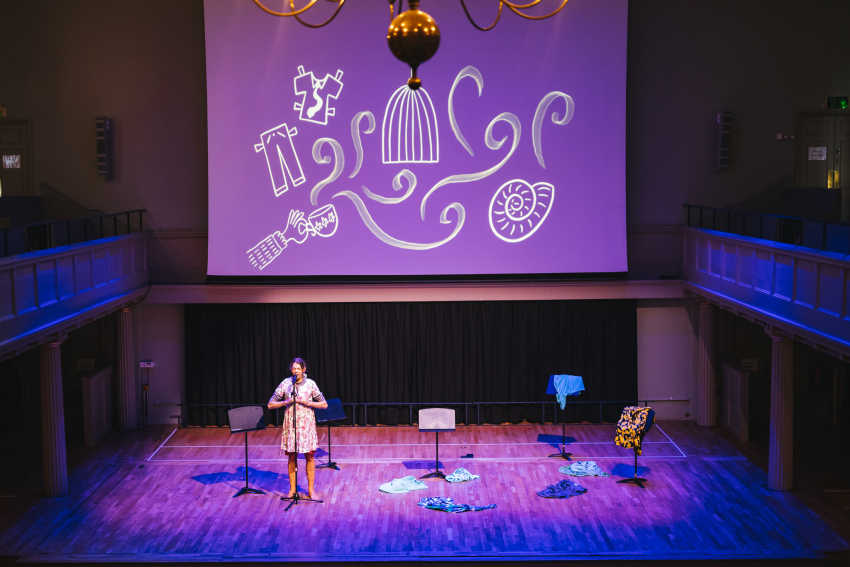
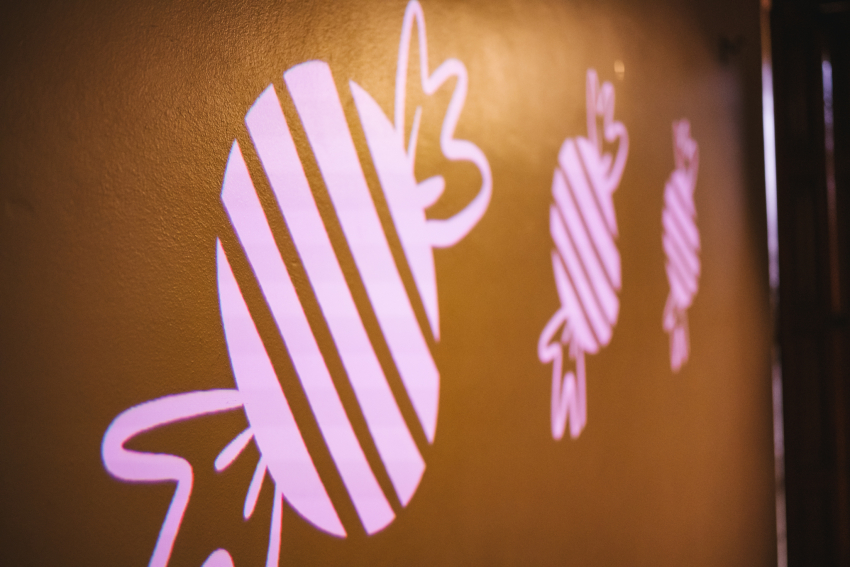
With this project we meet one of the Pervasive Media Studio’s main strategic aims: “We will build an inclusive community; one where a balance of different backgrounds, identities, skills, and approaches to thinking all belong.” Live illustration is the incarnation of active listening and accessibility. It offers another layer of reading to situations where people work and share collectively, and this is particularly relevant when listening to marginalised voices and stories. In Butterflies & Dinner Ladies, Tom explores his childhood and how, as a young gay boy, he found reassurance and inspiration in older ladies. And how, in Section 28 and Me, the prohibition of the ”promotion of homosexuality” by the Thatcher’s government impacted the development of his own identity. Tom’s poetic, emotional and inciting world is the perfect prompt for live illustration, a process of co-creation by essence, one that can’t happen in isolation and that depends on the expression and exchange of thoughts. He said about this experience:
“The Live illustration experiments added such a rich dimension to my work that I would love to create more pieces to work with Camille on, they also make the work much more accessible and universal.”
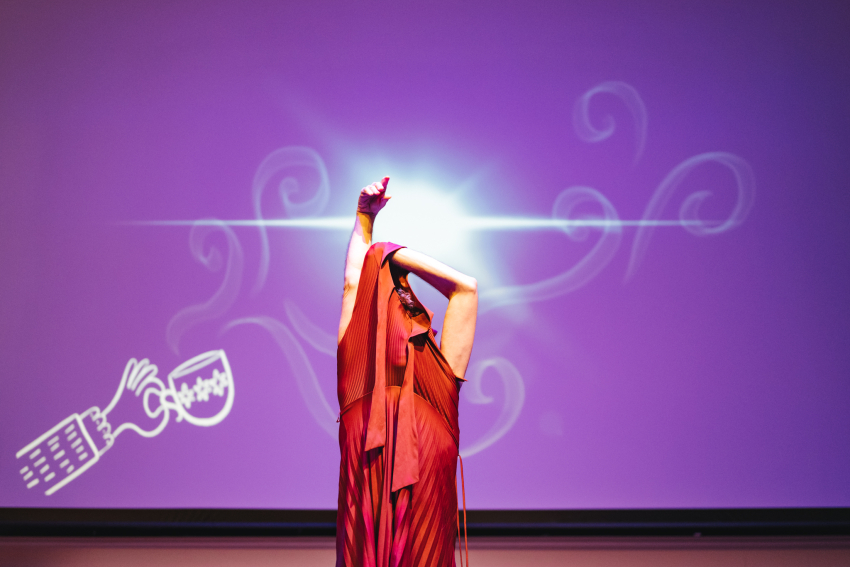
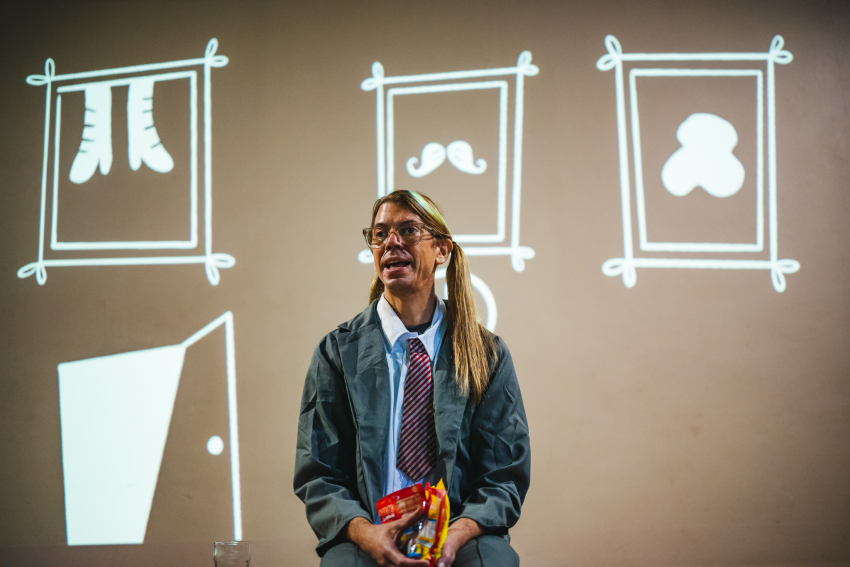
There are still a lot of ideas to explore, a lot of collaborations that need to take place. Live illustration remains a marginalised art form and I am still not convinced about being at the front of the room. But while I still like hiding in corners to listen to other people’s voices and stories, I keep being amazed by the potential of human collaborations and how these encounters can be amplified visually through magical stage experiences.
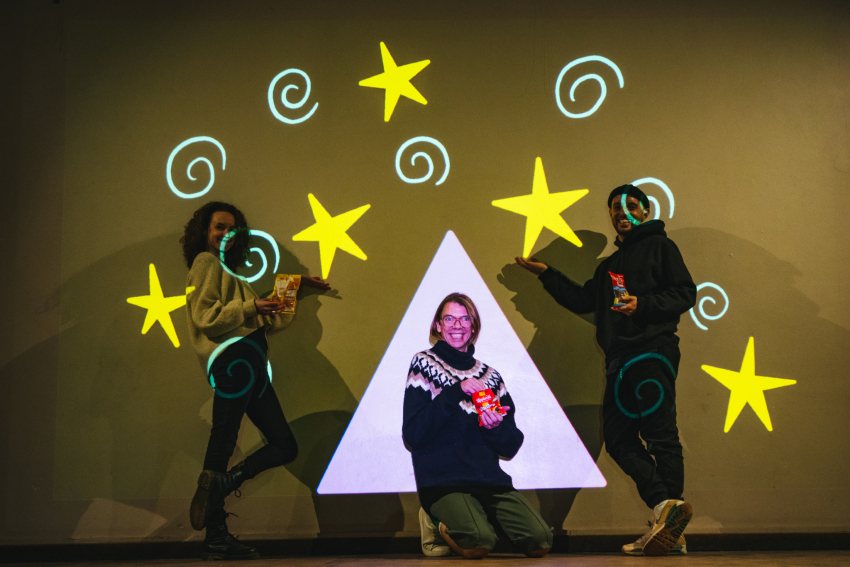
All photographies © Khali Ackford